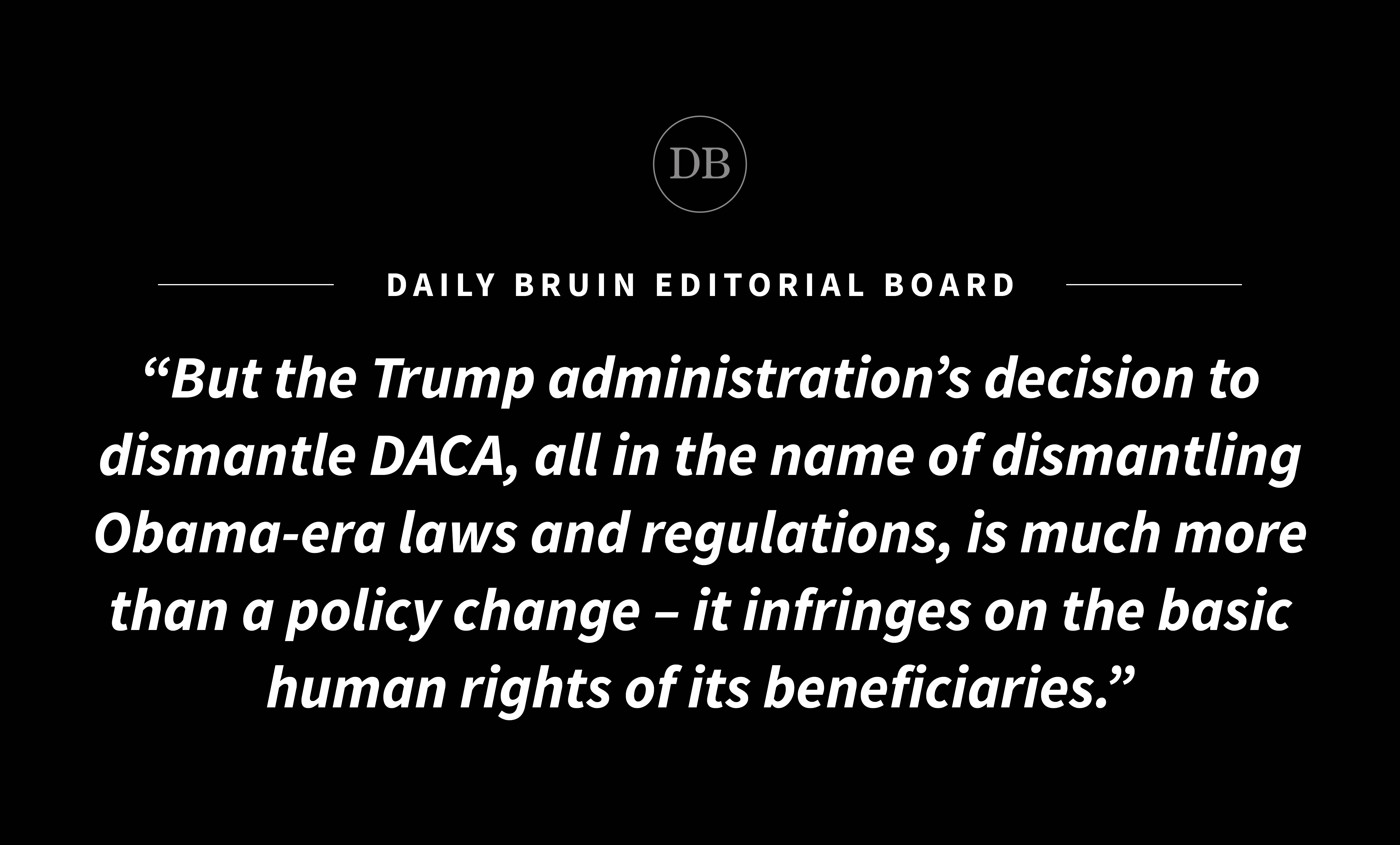With 700,000 at risk, partisanship has no place in Supreme Court hearing on DACA

By Editorial Board
Nov. 17, 2019 10:49 p.m.
Presenting arguments in the nation’s highest court isn’t usually on the University of California’s to-do list.
The Trump administration, however, has clearly prompted a new era.
The Supreme Court heard oral arguments Tuesday regarding the legal status of the Deferred Action for Childhood Arrivals program. DACA, a program adopted under then-secretary of the Department of Homeland Security Janet Napolitano and former President Barack Obama, aims to delay the deportation of undocumented immigrants who came to the United States as children.
But when then-Attorney General Jeff Sessions entered office in 2017, he quickly announced the program’s end.
Or at least he tried to.
The UC stepped up in September and took the DHS head-on, filing a brief in the Supreme Court to challenge DACA’s removal.
This immigration policy was Napolitano’s legacy as head of DHS, a move not forgotten by students during her time as UC president. But the Trump administration’s decision to dismantle DACA, all in the name of dismantling Obama-era laws and regulations, is much more than a policy change – it infringes on the basic human rights of its beneficiaries.
But the DHS seems more intent on comparing the incomparable.
In the oral arguments, the DHS justified its DACA termination on the basis that Obama had exercised unnecessary executive authority and violated separation of powers because DACA had no definite end date and Napalitano did not go through appropriate administrative procedures in creating it.
Now, the UC is arguing the same regarding the dismantling of DACA – Sessions did not follow the appropriate administrative procedures in attempting to dismantle it, and the decision to rescind the program should be reviewable in court.
Sure, the arguments are similar. What’s changed, however, are the stakes.
Before DACA was created, no one relied on it, and it did not warrant more than a policy change. Now, over 700,000 individuals depend on its presence – and if that doesn’t warrant judicial review, then Sessions clearly doesn’t know what does.
And beyond the legality lies the humanity.
The oldest DACA recipients are 38 years old, and individuals under its protection were brought to the U.S. by their parents through no choice of their own. Some of them are university students, others are adults with lives and families – and all of them are being punished for something they had no control over.
And, of course, an inhumane decision is boiling down to a partisan one.
After years of unanimous and near-unanimous decisions, 5-4 decisions split by conservative and liberal judges have become the new normal, notably surfacing in cases like the Supreme Court’s decision to uphold President Donald Trump’s travel ban in 2018.
It’s just unfortunate that DACA may experience the same fate.
Of course, the DHS has a right to take precaution and deem certain policies vulnerable to potential foreign danger. But first, it needs to show those policies make the country vulnerable – and that danger hasn’t yet been found in DACA.
Clearly, the UC realizes that.
Let’s just hope the Supreme Court does the same.

